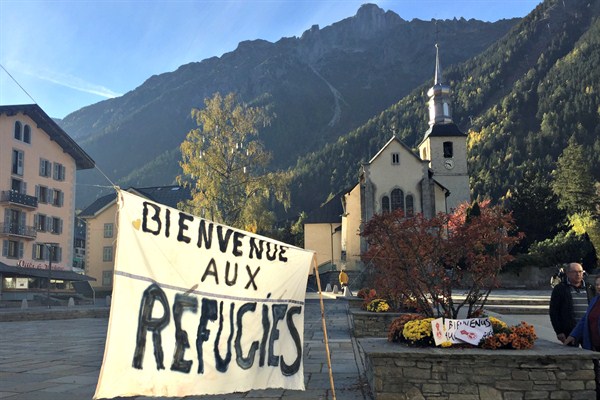Last month, authorities in Italy requested a formal investigation of five French border patrol agents in the Alps who entered Italy to perform an unauthorized drug test on a Nigerian citizen, in what the authorities say was a violation of Italian sovereignty. It was just the latest episode in months-long tensions at the French-Italian border near Col de l’Echelle, or Colle Della Scala, a high mountain pass in northwestern Italy that has become a popular route for migrants trying to enter into France.
In March, a volunteer mountain guide on the French side of the border was charged with facilitating illegal immigration after he rescued a migrant woman on the pass; she was nearly nine months pregnant. In April, an anti-migrant protest organized by a mainly French far-right group with branches in other countries, including Italy, led to clashes with the Italian police and pro-migrant activists.
Since France re-introduced border checks with Italy in the wake of the refugee and migrant crisis in 2015, migration routes have shifted to more remote areas—initially mountain passages like those in the Roya Valley near the Mediterranean town of Ventimiglia bordering the French Riviera. But this year, as those parts of the border became more heavily patrolled, migrants were pushed to find alternative routes that are even more remote, such as Col de l’Echelle, high in the Alps.

